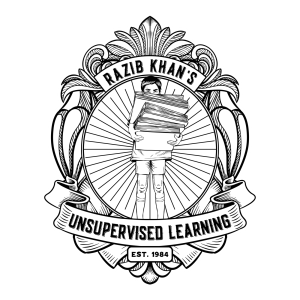
Razib Khan's Unsupervised Learning
Science:Life Sciences

Subscribe now
Give a gift subscription
Share
This week on Unsupervised Learning, researcher, blogger, and essayist Tanner Greer joins Razib to consider the challenges facing conservatism in America today, the future of China and its relationship to the US. Much of Tanner’s extensive research and analysis are featured on his excellent weblog, The Scholar’s Stage, and the conversation also touches on the current state of blogging (and its past).
Razib and Tanner first tackle the evolution of a new strand of modern conservative thought that has labeled itself the ‘New Right’ which, despite the recycled name, was not intended to suggest any relationship to the previous ‘New Right’ of the 1960’s through the 1980’s – that culminated in Reaganite conservatism. Apparently, the 25-year-old staffers and writers who are promoting the New Right have no clear memory, let alone awareness of the movement of the same name that dominated the last third of 20th-century politics in America. Either that or they lack the creativity to come up with something original.
Rather than being a reaction to a movement that young conservatives don’t remember, the 2020’s New Right grows out of a rejection of the Neoconservatism of the turn of the millennium and the libertarianism that failed to meet the challenges of the 2008 financial crisis. Tanner and Razib draw on the works of historians David Walker Howe and David Hackett Fischer to examine how the constitution of the New Right may have its roots in American history. But the New Right is less a grassroots movement than a collection of intellectuals gathering around journals and think tanks. It takes a suspicious view of the valorization of individualism that typified 20th-century conservatism, but its relevance to populist mass politics remains to be seen.
Tanner believes that the New Right is a positive development. He argues that different generations may require different means to tackle disparate problems and that the lack of political and economic power enjoyed by the young often leads to a tyranny of orthodoxy that eventually fades and disappears. Reaganism will only exhaust itself when the generations that remember Reagan retire from the scene.
Eventually, the conversation forays across the Atlantic for a brief look at China’s current prospects.. That nation faces its own set of challenges due in no small part to its own generational divide and disparities between rural and urban demographics. Razib asks Tanner why everyone in DC suddenly seems to be a China hawk and whether we are headed into a new Cold War. Though today Tanner is writing about the American political scene, he was until recently more well known as a China watcher and observer.
Finally, they wrap up the conversation by discussing blogging, and the indispensability of a private and informal intellectual space for exploring ideas and interacting in some depth.
Subscribe now
Give a gift subscription
More Episodes
 2024-11-07
2024-11-07
 2024-11-05
2024-11-05
 2024-10-30
2024-10-30
 2024-07-10
2024-07-10
 2024-07-02
2024-07-02
 2024-06-16
2024-06-16
 2024-06-07
2024-06-07
 2024-05-14
2024-05-14
Create your
podcast in
minutes
- Full-featured podcast site
- Unlimited storage and bandwidth
- Comprehensive podcast stats
- Distribute to Apple Podcasts, Spotify, and more
- Make money with your podcast
It is Free
- Privacy Policy
- Cookie Policy
- Terms of Use
- Consent Preferences
- Copyright © 2015-2024 Podbean.com





